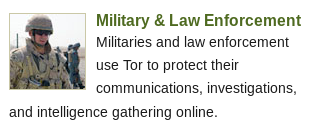
Farrell is charged with conspiracy to distribute cocaine, heroin, and methamphetamine due to his alleged role as a staff member of the Silk Road 2.0 dark web marketplace. “The record demonstrates that the defendant’s IP address was identified by the Software Engineering Institute (“SEI”) of Carnegie Mellon University (CMU”) when SEI was conducting research on the Tor network which was funded by the Department of Defense (“DOD”),” an order filed on Tuesday in the case of Brian Farrell reads. Now, both the name of the university and the existence of a subpoena have been confirmed in a recent filing in one of the affected criminal cases. After a media-storm, CMU published a very carefully worded press release, implying that it had been subpoenaed for the IP addresses it obtained during its research. Circumstantial evidence pointed to that body being the Software Engineering Institute (SEI) of Carnegie Mellon University (CMU). In November, Motherboard reported that a “university-based research institute” provided information to the Federal Bureau of Investigation that led to the identification of criminal suspects on the so-called dark web.

The Tor network remains the best way for users to protect their privacy and security when communicating online.”

That vulnerability, like all other vulnerabilities, was patched as soon as we learned about it. The Software Engineering Institute (“SEI”) of Carnegie Mellon University (CMU) compromised the network in early 2014 by operating relays and tampering with user traffic.

Update 25 Feb: In a statement, the Tor Project told Motherboard that “the Tor network is secure and has only rarely been compromised. If that information will be released at all, it will probably be released from them.” 18 statement.” When asked how the FBI knew that a Department of Defense research project on Tor was underway, so that the agency could then subpoena for information, Jillian Stickels, a spokesperson for the FBI, told Motherboard in a phone call that “For that specific question, I would ask them. Update: Kenneth Walters, a spokesperson from CMU, told Motherboard in an email, “We have nothing to add beyond our Nov.


 0 kommentar(er)
0 kommentar(er)
